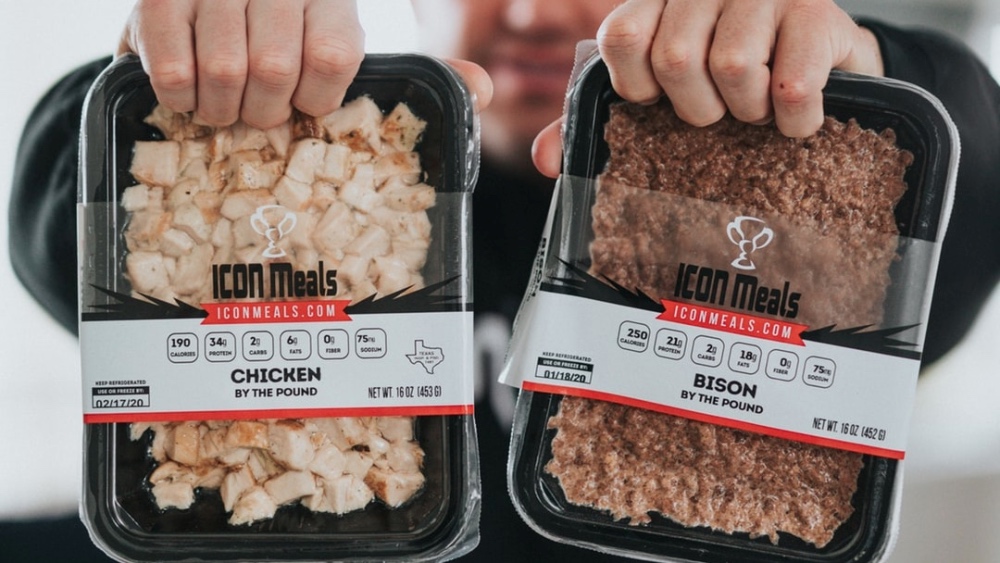(Updated May 11, 2020) | The COVID-19 pandemic could cost the meat industry billions of dollars in economic damages, according to a new study.
The National Cattlemen’s Beef Association (NCBA) commissioned the study—which was led by a team of agricultural economists—to determine how to best allocate Coronavirus Aid, Relief, and Economic Security (CARES) Act relief funds to cattle producers.
As of April 2020, the total beef cattle industry impact of COVID-19 experienced an estimated loss of $13.6 billion, “as a result of $9.2 billion in total revenue loss across 63.0 million animals. The average economic and revenue loss per head is $216/head and $146/head, respectively,” the study revealed.
The study found that “these impacts include $8.1 billion loss ($3.7 billion direct revenue loss; $4.4 billion breeding herd asset value loss) to the cow-calf sector representing 59.7 percent of total impact; $2.5 billion loss to the stocker/backgrounding sector representing 18.2 percent of total economic loss; and $3.0 billion loss to the feedlot sector representing 22.2 percent of total economic loss.”
Of the three sectors, the study finds the pandemic will impact the cattle producers the hardest. “This study confirms that cattle producers have suffered massive economic damage as a result of the COVID-19 outbreak and those losses will continue to mount for years to come, driving many producers to the brink of collapse and beyond if relief funds aren’t made available soon,” NCBA’s CEO Colin Woodall said in a release.
He added: “This study also clearly illustrates the fact that while the relief funds provided by Congress were a good first step, there remains a massive need for more funding to be allocated as soon as members of Congress reconvene.”

Trump Administration Bails Out Meat and Dairy
Shortly after the release of the study, the Trump administration announced it would issue a multi-billion dollar bailout for the meat and dairy industries. The administration said the new initiative, called the Coronavirus Food Assistance Program, would use $16 billion in funds appropriated by Congress to assist farmers and ranchers during the pandemic.
“The program will include direct payments to farmers, as well as mass purchases of dairy, meat and agricultural produce to get that food to the people in need,” Trump said during a briefing on the bailout.
The government will issue the $16 billion in direct payments to farmers and ranchers, according to the Agriculture Secretary Sonny Perdue. Of this amount, Congress will supplement $9.5 billion through the CARES Act.
In addition to the $16 billion in direct bailouts, Perdue revealed in the briefing that “the USDA will be purchasing $3 billion in fresh produce, dairy, and meat products to be distributed to Americans in need through our food bank networks, as well as other community and faith-based organizations.”
According to North Dakota Senator John Hoeven—who sits on the Senate’s Nutrition, Specialty Crops, Food and Agricultural Research Subcommittee—cattle farmers will get $5.1 billion, dairy farmers will receive $2.9 billion, and pig farmers should see $1.6 billion. The government will supply the remaining funds to crop producers.

Plant-Based Market Soars During Pandemic
The plant-based meat sector has seen considerable growth during the coronavirus outbreak.
According to research firm Nielsen, sales of plant-based meat products saw a major increase during the month of March. Sales of “fresh meat alternatives” soared 454.1 percent for the week ending March 21 compared to the same week in 2019. Sales of “fully-cooked meat alternatives” also grew by 128.6 percent during the same period. The previous week, fresh meat and fully-cooked meat alternatives saw an increase of 279.8 percent and 84.6 percent, respectively.
For the week ending March 21, fresh meat sales increased by 100 percent, processed meats increased by 127.2 percent, and fully-cooked meat increased by 73.8 percent.
Michele Simon, the executive director of the Plant Based Foods Association (PBFA) revealed PBFA’s 175 members, which includes companies like Beyond Meat and Impossible Foods, have seen an increase in demand as a result of the pandemic.
Simon told The Hill: “We knew that people were turning towards plant-based for a number of reasons but mostly for health reasons. I think now we can safely say that’s still the number one driver, but there might also be the perception of meat shortages.”
Last week, Beyond Meat reported its net revenues skyrocketed 141 percent to $97 million in the first quarter. That’s more than double than sales for the same quarter in 2019.
Impossible Foods also revealed demand for its plant-based meat products had “skyrocketed among home chefs” during the pandemic, according to Vox. As a result, the company accelerated its retail expansion plans. On May 5, Impossible Foods announced it would be selling the Impossible Burger at 1,700 Kroger Co.-owned grocery stores across the country. The brand debuted the Impossible Burger at Gelson’s supermarkets in southern California last year.
Estimated global annual sales from traditional meatpacking and processing total more than $1 trillion across beef, pork, and poultry, according to Statista.


